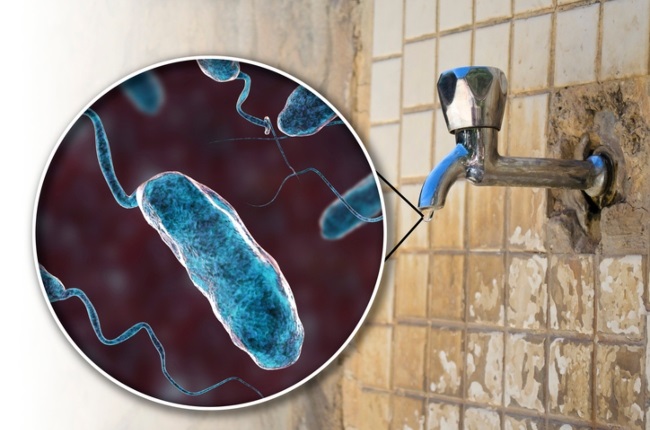
If you’re on WhatsApp, you’ve probably seen the panic growing as false news spreads about the safety of our tap water.
“Guys don’t drink tap water, or swallow shower water,” many residents of the economic hub have been told in text messages doing the rounds on WhatsApp. “Boil all your water there seems to be a cholera contamination in Gauteng water.”
This follows an announcement by the Gauteng Health Department that the province, which is the country’s economic hub, had recorded its first cholera death.
Read more | Shigella a sign of things to come as world sees increase of highly contagious XDR bacteria and AMR
“The Department of Health dismisses malicious information circulating on social media platforms that claims there is an official correspondence advising communities not to drink tap water,” national health department spokesman Foster Mohale said on Tuesday, 28 February.
“Water in South Africa is generally safe to drink and cook with when taken from taps. The country's national water quality standard lives up to the World Health Organisation (WHO) set standards.”
The Gauteng Health MEC, Nomantu Nkomo-Ralehoko, on Friday urged the public to practice proper hand hygiene and not to drink water from contaminated sources following the announcement of a Cholera-related death in the province by the Minister of Health, Dr Joe Phaahla, on Thursday.
“The province has five confirmed Cholera cases. Sadly, the fifth case resulted in the death of a patient who had earlier presented with profuse watery diarrhoea and was admitted at Tambo Memorial Hospital where his results confirmed positive,” said the provincial department.
“We can never over emphasise the importance of the public visiting the nearest health facilities when they present with mild to severe and watery diarrhoea and dehydration symptoms. Furthermore, the practice of proper hand-hygiene which includes thorough washing of hands with water and soap before and after using the bathroom and also when handling food is quite critical,” said MEC Nkomo-Ralehoko.
Read more | SA records 2 lab-confirmed cholera cases as neighbour Malawi battles outbreak that’s killed hundreds
According to the DoH, "Cholera mainly spreads through contaminated/polluted water.
"People can become infected directly through drinking contaminated water, or indirectly through eating contaminated food.
"Symptoms include
- diarrhoea;
- dehydration;
- vomiting, and
- body weakness.
"Members of the public are reminded to maintain hand hygiene to prevent possible transmission.
"All people who experience cholera-like symptoms, with or without local or international travel history, are encouraged to immediately visit their nearest health facility for screening and testing to ensure early detection and successful treatment, if test positive."
Mohale earlier this month reiterated that cholera is not endemic in SA while confirming that two sisters travelling to SA from Malawi had contracted the disease.
“In places where cholera is endemic, vaccination is less effective because cholera is always in circulation, as opposed to outbreaks in countries where there is little immunity and thus greater potential to prevent harm,” Amber Hyman, a public health researcher at the Berlin Institute of Technology, told Harvard Public Health recently.
For many of us living in countries where malaria is not endemic, knowing how to prevent the spread of cholera is still life-saving.
“Most symptomatic cases of cholera cause mild or moderate diarrhoea that’s often hard to distinguish from diarrhoea caused by other problems,” says the National Institute for Communicable Diseases (NICD).
“Cholera is a bacterial disease usually spread through contaminated water. Cholera causes severe diarrhoea and dehydration. Left untreated, cholera can be fatal in a matter of hours, even in previously healthy people. Most people exposed to the cholera bacterium (Vibrio cholerae) don’t become ill and never know they’ve been infected. Yet because they shed cholera bacteria in their stool for seven to 14 days, they can still infect others through contaminated water.”
Malawi, Nigeria, Ethiopia, Haiti, Syria and Lebanon are currently fighting outbreaks.



















